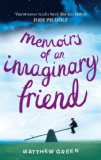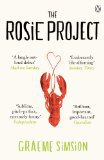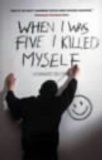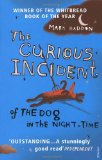 Today is world autism awareness day. My eldest son has Asperger’s syndrome, a form of autism, and so I’m keen to spread the word about the condition and give as much information as I can.
Today is world autism awareness day. My eldest son has Asperger’s syndrome, a form of autism, and so I’m keen to spread the word about the condition and give as much information as I can.
The main problem with autism is that there are no outward physical signs of a disability. The general public has little awareness of the difficulties faced by those with autism, often assuming those with the condition are rude, naughty or stupid. Society places emphasis on our ability to socialise and although many people with autism are talented, intelligent individuals they find life difficult because the rest of the population fail to understand their needs.
Autism is a spectrum disorder, meaning that some people are more disabled than others, but all share the ‘triad of impairments’. They are:
- difficulty with social communication
- difficulty with social interaction
- difficulty with social imagination
Many also suffer from a heightening of the senses, meaning that strong light, noise, smell or touch can be unplesant.
You probably know someone with undiagnosed autism.
It is estimated that one in every hundred people have autism, but a diagnosis is often only obtained for those at the more severe end of the spectrum.
Does this sound like someone you know?
- Rigidly follows rules
- Talks endlessly about a single subject
- Unable to understand facial expressions
- Incapable of lying
- Has inflexible routines
- Thinks literally
- Has difficulty understanding sarcasm
If you’d like more information the National Austic Society is a fantastic source of information.
The Best Fiction Books About Autism?
Since my son received his diagnosis I’ve made an effort to read as many books as possible containing autistic characters. Most have the factual details of the condition right, but very few capture the difficulties and emotions correctly.
The Rosie Project by Graeme Simsion
An entertaining romance involving a man with Asperger’s syndrome. It is a fantastically positive book and is the first I recommend to someone looking for fiction involving autism.
Speed of Dark by Elizabeth Moon
Speed of Dark is set in the near future, at the moment they find a cure for autism. This is a fantastic book that questions whether or not we’d be better off without autism in our society.
 Note: Author is known as Matthew Dicks in the US
Note: Author is known as Matthew Dicks in the US
Memoirs of an Imaginary Friend by Matthew Green
This is a wonderful book for older children, but I loved it too. It is narrated by the imaginary friend of a child with autism and gives a fantastically original perspective on the condition. The audio book is particularly good.
When I Was Five I Killed Myself by Howard Buten
This little gem deserves to be more widely known. It questions how responsible children are for their actions and is a gripping, forgotten masterpiece.
Marcelo in the Real World by Francisco Stork
This YA book questions whether or not we should force those with autism to integrate with society. It is entertaining and insightful and the book I am most likely to recommend to family members unfamiliar with autism.
The Curious Incident of the Dog in the Night-time by Mark Haddon
This modern classic was the first to bring autism to a wider audience. It remains one of the best books on the subject.
Which is your favourite book that deals with autism?
.





26 replies on “World Autism Awareness Day: The Best Fiction Books?”
What a great post Jackie on an importance and misunderstood affliction.
Hope your son has a wonderful life:)
Thanks Diane!
I’ve been reading your blog for awhile now quietly. I also have a Son (12) that has Aspergers so I understand their challenges too. I’ve read Curious Incident with our book club and absolutely loved it. I have also read and enjoyed House Rules by Jodi Picoult. I’m excited to try some of your other recommendations 🙂 Thanks for spreading the word on Autism!
Angela, Thanks for commenting on my blog for the first time 🙂 I read House Rules and enjoyed it, but it wasn’t quite in the same league as the ones above. I hope you enjoy some of my suggestions.
thanks for sharing nice to see this day getting more and more attention every year ,all the best stu
Stu, Yes, it is nice to see awareness growing every year. When my son was diagnosed 4 years ago hardly anyone had heard of it, now most people are at least aware, even if they don’t know exactly what it means.
Excellent post, and thank you for the book recommendations – I’ve only read The Curious Incident… but want to read all the others now! I didn’t actually realise it was World Autism Day but coincidentally reviewed a book that has a character with Asperger’s in today, and ended up rambling a bit about the issue! (The post is here: http://whathannahread.wordpress.com/2013/04/02/the-uninvited-by-liz-jensen/ – shameless self-promotion I know but it is relevant to this post ;)).
Hannah, You’ve written a fantastic post! I love the fact you published it on World Autism Day, even if it was by accident. I haven’t read The Uninvited, but it is on my wishlist now – thanks for drawing it to my attention!
I have two people close to me who are autistic.
First, my 17 year old nephew who very strongly displays the ‘triad of impairments’ you mention and is extremely lackadaisical in all except for when it comes to video games, playstaion and such. When “Curious Incident of the Dog” came out years ago, it was a HUGE eye-opener for me as to what might be going on inside the head of this child. It had never occurred to me that, for example, not liking carrots might stem from a hatred of the colour orange!!!
And then my dear friend’s 14 year old son has been diagnosed with Asperger’s. He has issues with physical contact, following rules, thinking literally, (you can’t say “i’ll be back in a minute” and then be gone for two), gets aggressive….. It’s a rather long list. I do understand how people who have little contact with those with the condition might find them rude, naughty and stupid as you say.
I recently read “600 Hours of Edward” by Craig Lancaster in which we were invited to share 600 hours in the life of Edward, a grown man living alone with Aspergers.
Goodness, how complicated things can get!! And the routine!! A good read.
You might have heard of a new book just out “The Rosie Project” by Graeme Simsion. Top of my TBR pile as soon as I get my hands on it.
Ifi, What I’ve found most amazing is how often we lie or say things we don’t mean (I’ll be back in a minute is a classic example!) My son is slowly getting used to all these things, but I have to train each one individually. Teaching a child how to lie correctly seems really wrong, but it is important he learns how everyone else does things.
I’ve heard good things about “600 Hours of Edward’ before, but now you’ve endorsed it as well I’ll ensure I get to it soon.
I’ve seen ‘The Rosie Project’ mentioned a few times, but I didn’t realise it was about autism – I’ll keep an eye out for it now. Thanks!
I wholeheartedly support greater awareness and support (early intervention) for those with autism, growing up with a member of my extended family on the severe end of the spectrum. I think a terrible mistake those uneducated about the condition make is to assume that just because the person has difficulties communicating/interacting normally it follows that they do not understand what others are saying in their presence – this is most certainly not the case.
Jo, I totally agree with you. Things have improved a lot in the last few years. Hopefully they’ll continue to do so and everyone will get the help/support they need.
A wonderful post and excellent recommendations thank you. It’s good to know that there books out there dealing with these experiences, for those just entering on the journey it is often one of the more difficult things to find.
Claire, There are some fantastic books out there. If you are starting out on the journey then non fiction is probably a better place to start so that you have all the technical information you need. For Asperger’s I highly recommend books by Tony Atwood.
I only read Speed of Dark and The Dog in the Night Time from your list, which I both loved.
I remember a good read in which the father of the family obviously was autistic. But what was it again? 🙂 I love it when books have adult autists in them, as people tend to think it’s something only children have.
Judith, I agree about the need for autistic adults in fiction – it is too rare an event. Let me know if you come across any!
Wonderful post, Jackie, and a good resource, too. It is difficult sometimes to find books that present disabilities correctly so I’m glad for this list from you, as there’s your knowledge to approve it, so to speak. I don’t know a fair amount about autism, but I’ve a non-fiction book to be read soon which I hope will fill some gaps. It’s a memoir so I reckon it’ll be pretty great (Raising Cubby).
Or, rather, “I know a fair amount”. Proof-reading nowhere to be seen today.
Charlie, I haven’t heard of ‘Raising Cubby’ but I look forward to your thoughts on it. Some memoirs are great – of the ones I’ve read ‘Born on a Blue Day’ is one I recommend.
As you know already, Jackie, my 12 year old son has ASD and socialising is fraught with difficulties for him. School also can be a source of anxiety, not the academic side but the noise, sensory overload and how to understand the “humour” of adolescent boys… I would echo endorsements of 600 Hours of Edward.
However I didn’t rate The Rosie Project which read more like a script for a comedy film, one-liners aplenty and I didn’t think it helped understanding – just my opinion though! Belinda Bauer’s recent crime novel Rubbernecker has a main protagonist with Aspergers and I think she gets the balance right. The London Eye Mystery by Siobhan Dowd is a very good YA novel with a leading Aspie character. Incidentally my son loved The Curious Incident. I deliberately didn’t tell him about the autistic element (which Mark Haddon says was unintentional..) but he was soon aware of it and he liked the idea of being able to identify with a character.
I think it is becoming increasingly “trendy” to have characters on the autistic spectrum – I don’t mind this and it could be a great means of educating folk but the characters can frequently become stereotypes when they are so much more than the sum of their autistic traits.
Teresa, You were the first person to introduce me to ‘600 Hours of Edward’ and knowing your experience I always trust your autism related book recommendations (in fact all book recommendations!)
Sorry to hear ‘The Rosie Project’ didn’t quite work for you. I’m still curious to try it, but I won’t rush out to get it now.
I agree that it is becoming trendy to have a character with autism and that leads to a lot of mediocre books on the subject. You’ll notice that my list above is free of the big name authors who jumped on the autism bandwagon. In a way it is nice that they are raising awareness, but none really impressed me. Let’s hope a few more gems come out of the wood work soon.
I have a good friend who has two sons with autism so I try to learn and read about this subject as much as possible to better understand her and her kids. Thanks for this list and for spreading the word and educating us about autism.
Jenners, My pleasure!
Jackie, I think you should read ‘The Rosie Project’ — the main character is definitely on the autistic spectrum and I know the author has had very positive feedback from the autistic “community” (for wont of better description) about it. If you do get to read it, I’d be interested in your take on it. I didn’t mention the autism angle in my review, only because I didn’t want to “diagnose” the character — autism is not explicitly mentioned in the text, although it’s pretty clear that Don has it.
[…] to read as many books as possible that contain characters with Asperger’s syndrome. On Autism Awareness Day Hannah pointed out that The Uninvited fitted my criteria and so I added it to the top of my […]
Please consider “Fortune on the Spectrum”. This is an adventure novel with the main character on the autism spectrum.